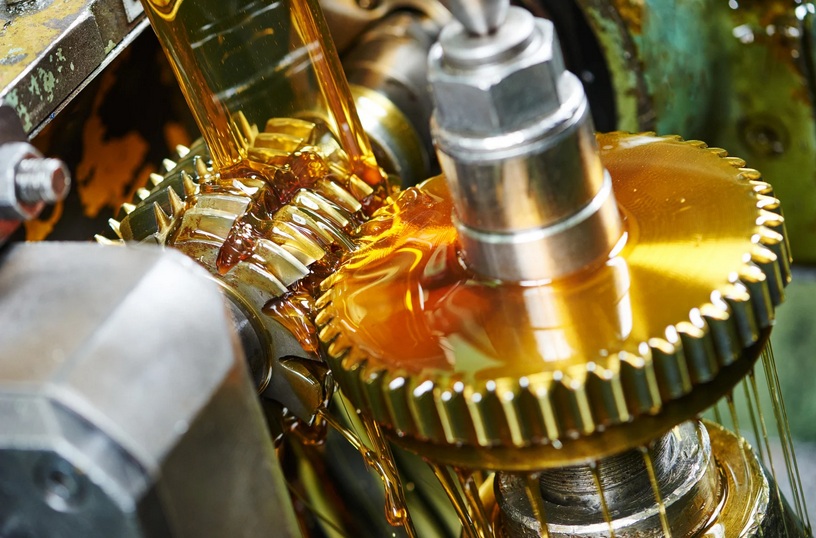How to Choose the Right Wipe for Cleaning Industrial Tools and Surfaces?
Cleaning industrial tools and surfaces is an essential part of production processes, aiming not only to maintain cleanliness but also to ensure safety, efficiency, and the longevity of the equipment used. Regardless of the industry—whether automotive, electronics, pharmaceuticals, or food—the proper cleaning of tools and surfaces directly affects product quality, machine precision, and production savings. One of the key elements in this process is choosing the right wipe that guarantees effectiveness, safety, and cost-efficiency.
What is Industrial Wipe?
Industrial wipes are specialized materials used for cleaning tools, machines, work surfaces, and other elements in manufacturing facilities. Using the right material for cleaning is crucial to avoid damaging equipment and ensure efficient dirt removal. These wipes vary by the material they are made from and the specific properties that allow their use in different work environments.
Among popular types of industrial wipes are those made from nonwoven fabric. Nonwoven fabric is a material known for its exceptional durability, tear resistance, and ability to absorb large amounts of liquid. Additionally, such materials do not leave lint or fibers on the cleaned surfaces, which is essential when working with precise components.
What Features Should a Wipe Have for Cleaning Industrial Tools and Surfaces?
The choice of the right wipe for cleaning tools and surfaces depends on several key features that must be met to ensure the process is effective and safe:
- Durability – The wipe must be strong enough not to tear or break during use, especially during intensive cleaning processes.
- Solvent Resistance – In industries, strong chemicals like solvents or detergents are often used. Therefore, the wipe must be resistant to such substances.
- Absorbency – A good cleaning material should be able to absorb liquids, oils, greases, and other substances, allowing thorough surface cleaning.
- Lint-Free – An important requirement in many industries is that the wipe leaves no fibers or lint. This is particularly crucial in precision industries such as electronics or automotive, where dirt can lead to serious malfunctions.
- Longevity – The industrial wipe must be durable enough to perform its role for a long time, reducing operational costs.
How to Effectively Clean Industrial Tools and Surfaces?
Effective cleaning of industrial tools and surfaces should follow appropriate procedures to ensure both safety and high-quality cleaned surfaces. Here are some tips to consider:
- Remove Loose Contaminants – Before proceeding with actual cleaning, it’s advisable to remove loose dirt, such as dust, debris, or paint residues, from tool surfaces. This can be done using a dry nonwoven fabric wipe.
- Degreasing – Many tools in the industry require thorough degreasing. For this, use the appropriate cleaning agent and match it with the right wipe. Only then can oils, greases, and other oily substances be removed effectively.
- Cleaning Hard-to-Reach Areas – Industrial tools and machines often have complex structures. In such cases, nonwoven wipes are the best option as they can reach hard-to-access areas, such as cracks or crevices.
- Using the Right Cleaning Agent – When cleaning industrial surfaces, use cleaning agents that are appropriate for the material and the type of contamination. Depending on the task, these may include degreasers, solvents, or disinfectants.
- Step-by-Step Cleaning – For larger surfaces, such as production lines or industrial halls, it’s advisable to clean in stages. Start by removing loose dirt, proceed to degreasing, and finish with polishing.
- Regular Tool Maintenance – In addition to cleaning, it’s also important to maintain the tools. Regular removal of dirt and grease extends their lifespan and prevents damage.
Choosing the Right Wipe
The choice of the right wipe is crucial for the effectiveness of cleaning industrial tools and surfaces. Many types of wipes are available, such as those made from nonwoven fabric, which are durable, absorbent, and lint-free. Depending on the specifics of the job, it is important to match the material to the task at hand.
It is also important to remember that regular cleaning of tools and machines affects their longevity and performance, and the right wipe helps reduce operational costs and increase the efficiency of production processes.
Industrial wipes are an investment in quality, safety, and the durability of equipment in any industry.


Contact
Products
Information
© 2025 Avatex – professional nonwoven and industrial wipes

